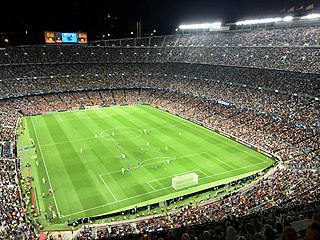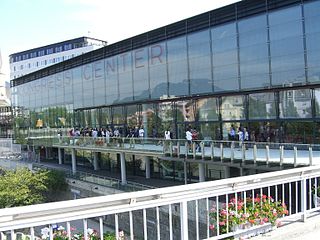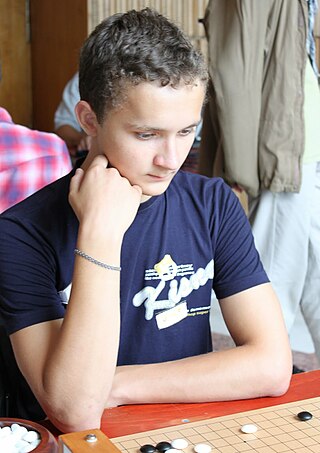
A Go professional is a professional player of the game of Go. The minimum standard to acquire a professional diploma through one of the major Go organisations is very high. The competition is tremendous, and prize incentives for champion players are very large. For example, the Honinbo Tournament has a grand prize of about $350,000.

There are various systems of Go ranks and ratings that measure the skill in the traditional board game Go. Traditionally, Go rankings have been measured using a system of dan and kyu ranks. Especially in amateur play, these ranks facilitate the handicapping system, with a difference of one rank roughly corresponding to one free move at the beginning of the game. This system is also commonly used in many East Asian martial arts, where it often corresponds with a belt color. With the ready availability of calculators and computers, rating systems have been introduced. In such systems, a rating is rigorously calculated on the basis of game results.
The American Go Association (AGA) was founded in 1935, to promote the board game of Go in the United States.
Professional sports leagues are organized in numerous ways. The two most significant types are one that developed in Europe, characterized by a tiered structure using promotion and relegation in order to determine participation in a hierarchy of leagues or divisions, and a North American originated model characterized by its use of franchises, closed memberships, and minor leagues. Both these systems remain most common in their area of origin, although both systems are used worldwide.

Sport in Europe tends to be highly organized with many sports having professional leagues. The origins of many of the world's most popular sports today lie in the codification of many traditional games, especially in the United Kingdom. However, a paradoxical feature of European sport is the extent to which local, regional and national variations continue to exist, and even in some instances to predominate.
Manfred Wimmer was the first Western professional Go player.

Proven reserves is a measure of fossil fuel energy reserves, such as oil and gas reserves and coal reserves. It is defined as the "[q]uantity of energy sources estimated with reasonable certainty, from the analysis of geologic and engineering data, to be recoverable from well established or known reservoirs with the existing equipment and under the existing operating conditions." A reserve is considered proven if it is probable that at least 90% of the resource is recoverable by economically profitable means.
The European Go Federation (EGF) is a non-profit organization with the purpose of encouraging, regulating, co-ordinating, and disseminating the playing of the board game Go in Europe. The EGF was founded in 1957, the same year that the inaugural European Go Congress (EGC) took place in Cuxhaven, Germany. The Congress has been an annual event every year since then, held each time in a different European city. The European Go Championship takes place during the EGC, as well as the Annual General Meeting (AGM). In 2014, the European Professional System was established by the European Go Federation.

The European Go Championship or Congress (EGC) is the annual and main event organised by the European Go Federation for players of the board game Go. It consists of a 2-week open competition, one round per day, making a total of 10 rounds with a champion ultimately emerging – the player with the most wins. The Congress has taken place in a different European city each year, since the first contest in 1983. During these two weeks, the best Go players in Europe fight for the title of European Champion. The number of participants in recent years has ranged from a low of 290 to a high of 718 players.

The board game of Go was created in East Asia, and is still dominated by Japan, Korea and China. However, since the late 1900s several high-level players have grown and become active in Europe. Some of them are players from Asia who came to promote the game of go in Europe. Mainly, though, the players were born in Europe, sometimes with strong support from Asian Go professionals, and a few of the Europeans have themselves become professional players.

TKO Super Championship Boxing - known in Japan as Kentou-Ou World Champion - is a boxing video game, developed by Sting Entertainment and published by SOFEL, which was released in 1992.
The 1925 Stanford football team was an American football team that represented Stanford University as a member of the Pacific Coast Conference (PCC) during the 1925 PCC football season. In its second season under head coach Pop Warner, Stanford compiled a 7–2 record and finished second in the PCC. Its only conference loss was against conference champion Washington. The team played its home games at Stanford Stadium in Stanford, California. The team was ranked No. 8 in the nation in the Dickinson System ratings released in January 1926.

Ilya Valerievich Shikshin is a 4-dan professional Go player from Russia. He was the fourth player to be awarded professional status by the European Go Federation, in 2015. He has won 27 major European titles including the European Championship, European Team Championship and European Pair Go Championship.

Jan Šimara is a Czech Go player. He placed first in the European Go Championship in 2012.

This is an article about the history of female Go players in Asia and Europe.

Mgr. Pavol Lisý was the first professional go player certified by the European Go Federation.

The IEC 62196 Type 3 connector is used for charging battery electric vehicles, mainly within France and Italy, as it was one of three AC plug standards described in IEC 62196-2. The Type 3 connector comes in two physical formats, Type 3A for single-phase (230V) and Type 3C for single- and three-phase (400V) alternating current (AC) power. Both have since been superseded by the Type 2 connector, the latter adopted as sole connector in 2013 by the European Union. The Type 1 connector is the corresponding AC connector standard used in North America, Japan, and South Korea.

Artem Volodymyrovych Kachanovskyi is a 2-dan professional go player from Ukraine. He was the fifth player to be awarded professional status by the European Go Federation, in 2016. He has won the European Grand Slam tournament twice, in 2017 and 2021, and was runner-up in the European Championship four times, in 2010, 2019, 2021 and 2022. He placed third in the 2013 World Amateur Go Championship, an achievement shared by only two other European players. Among other high tournament placements, he was part of the winning team in the Pandanet European Team Championship in 2016 and 2022, and won the Silk Road Tournament in 2019 and the first season of the European Professional Go League in 2020.
The 2022–23 Moldovan Liga 2 was the 32nd season of Moldovan football's third-tier league. The season started on 13 August 2022 and ended on 27 May 2023. The league consisted of two regional groups, Nord (North) and Sud (South).









